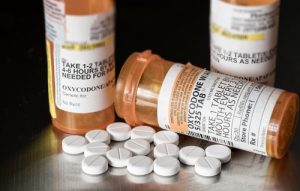
The economic toll of the nation’s opioid drug epidemic was the focus of a Joint Economic Committee (JEC) hearing led by U.S. Reps. Pat Tiberi (R-OH), Erik Paulsen (R-MN) and U.S. Sen. Rob Portman (R-OH) on Thursday.
Tiberi, the chairman of the committee, and committee members Paulsen and Portman heard testimony from witnesses on the toll that opioid abuse has had on families, communities and local economies.
“Drug abuse has become rampant in America and may be the worst the country has experienced. It is devastating families and degrading communities, and undermining parts of the economy,” Tiberi said.
National data examined at the hearing showed drug overdose death rates by state in 2015, which ranged from 40 per 100,000 in West Virginia to six per 100,000 in Nebraska. New developments in the sourcing, cost of production, potency, and retail delivery have spread the supply of both legal and illegal addictive drugs across the country, Tiberi said.
He added that legal and illegal drug markets can be analyzed from the demand and the supply side, though he said the exact reasons for the extent of drug abuse are not clear.
“With respect to demand, a changing perception of pain as a health problem in the 1980s by the World Health Organization in particular laid the ground for more intensive treatment.” The labor market and economy have an impact on demand as well, Tiberi noted, with long-term downturns in labor markets and economic conditions being associated with social, behavior and health problems.
“All of society is vulnerable to the opioid epidemic, but it is compounding the economic distress that certain parts of the country and segments of the population already have been experiencing,” Tiberi said. “Some areas of high unemployment tend to have higher rates of substance abuse.”
In terms of supply, Tiberi said, areas where new, potent drugs have become most readily available “track a visible trail of destruction” across the country.
Tiberi and Portman had taken aim at illegally distributed variations and counterfeit forms of prescription drugs through the Synthetics Trafficking and Overdose Prevention (STOP) Act, which cracks down on trafficking drugs through the Postal Service.
Portman, who also championed the Comprehensive Addiction and Recovery Act (CARA), asked Ohio Attorney General Michael DeWine to explain how the powerful synthetic fentanyl has impacted communities in Ohio during the hearing.
“… The opioid problem is a subset of a bigger problem,” DeWine said. “The bigger problem is that we have a large number of people in Ohio and other states who are not living up for many reasons to their God-given potential and we’ve got a problem with people not having the right skills.” Aside from emphasizing the need for young people to pursue higher education or apprenticeship programs, he acknowledged the many middle-class people also have been impacted by addiction.
Paulsen agreed during the hearing that the problem is widespread, noting that he’s spoken with many families who have lost children to drug abuse and referencing pop star Prince’s overdose death.
“This is a problem that affects many different types of people — old and young, rich and poor, your neighbor down the street as well as an international celebrity,” Paulsen said. “And while it’s important to understand the physical and emotional effects of the opioid crisis on Americans, there is also value to coming to grips with the economic toll it is taking on the country as well.”



